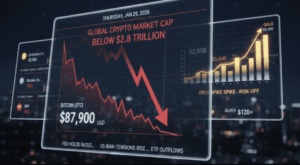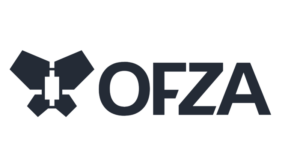The United Arab Emirates is shaking up the global cryptocurrency landscape with a bold new move: for the first time ever, the country is unifying its fragmented crypto regulatory system into a single, nationwide framework.
This partnership between the Securities and Commodities Authority (SCA) and Dubai’s Virtual Assets Regulatory Authority (VARA) promises to make the UAE a powerhouse for digital asset innovation, but not without raising fresh questions about who will thrive in this emerging ecosystem and who might be left behind.
The stakes are high. Crypto firms have long struggled with conflicting rules across the UAE’s seven emirates, each with its own licensing requirements and enforcement practices. This disjointed approach has hampered growth, introduced unnecessary complexity, and left investors wary.
The new agreement, unveiled on August 7, 2025, aims to cut through this chaos by offering one licensing regime, one market, and one set of rules.
But this isn’t just a local story; it’s a signal to the world that the UAE is stepping into the big league of global crypto hubs, positioning itself alongside heavyweights like Singapore and Hong Kong.
A Game-Changer for Crypto in the Emirates
The new unified framework means Virtual Asset Service Providers (VASPs) licensed in Dubai will be automatically recognised across all emirates, and vice versa. Regulators will pool resources, share intelligence in real time, and conduct joint audits and enforcement.
For crypto startups and investors, this means simpler licensing processes, fewer regulatory hurdles, and more predictable oversight. The goal? To create an environment where innovation can flourish while risks like money laundering and fraud are kept in check.
This unified approach also signals the UAE’s commitment to global regulatory standards. The SCA and VARA are working through a special legislative committee to align the country’s crypto laws with international frameworks like those recommended by the Financial Action Task Force (FATF). This makes the UAE not just a regional leader, but a contender on the world stage.
Bridging the Regulatory Divide to Build Trust
The UAE’s crypto scene has been growing rapidly, but the patchwork of rules has often caused confusion and uncertainty. By eliminating overlapping jurisdictions and closing regulatory gaps, the SCA and VARA hope to boost investor confidence and attract more serious institutional players — those who have so far been hesitant due to the lack of clarity.
Moreover, the agreement puts a sharp focus on cooperation in anti-money laundering (AML) and counter-terrorism financing (CTF). With shared risk assessments and coordinated enforcement, the UAE is sending a strong message that it intends to be a secure and transparent destination for crypto business.
What This Means for Investors and Innovators
The benefits are clear. Crypto companies can now navigate a single licensing process, reducing costs and speeding up time to market. Investors can expect more consistent rules and stronger protections. And regulators will be able to react more quickly to risks and market changes.
This framework may well be the spark that ignites a wave of new innovation and investment in the UAE’s digital asset market, boosting everything from blockchain startups to decentralized finance (DeFi) projects and crypto trading platforms.
A Double-Edged Sword for Smaller Players?
However, the picture isn’t entirely rosy. While the unified framework offers many advantages, the increased regulatory burden could disproportionately affect smaller startups. Early estimates suggest that compliance costs may jump from approximately €10,000 to €60,000.
For cash-strapped fintech firms and young entrepreneurs, this could raise the barriers to entry, potentially slowing innovation and consolidating power in the hands of larger, well-capitalised players. The UAE’s regulators will need to carefully balance fostering growth with ensuring robust oversight.
How the UAE’s Approach Stands Out Globally
Unlike Europe’s more rigid MiCA regulation or other fragmented markets, the UAE’s framework attempts to blend national consistency with local flexibility. This hybrid model might become a blueprint for other countries grappling with regulating a fast-moving, complex industry.
By enabling emirate-level rules within a national framework, the UAE retains room for innovation and adaptation while promoting transparency and investor protection. The partnership between SCA and VARA is a pioneering example of cross-jurisdictional regulatory cooperation.
The Road Ahead: A Crypto Hub in the Making
The UAE’s regulatory unification is more than a bureaucratic reshuffle. It’s a declaration of intent that the country is ready to be a global leader in digital finance, not just a regional player.
If implemented effectively, this framework could attract a wave of international investment, increase liquidity in key cryptocurrencies like Bitcoin and Ethereum, and encourage the growth of a diverse, vibrant digital asset ecosystem.
Yet, the ultimate success depends on how well regulators manage the delicate balance between innovation and control, how quickly the framework is rolled out, and whether the cost of compliance can be made accessible to all players.
One thing is clear: the UAE’s move to unify crypto regulation is a game-changer, and the world will be watching closely as this ambitious experiment unfolds.






